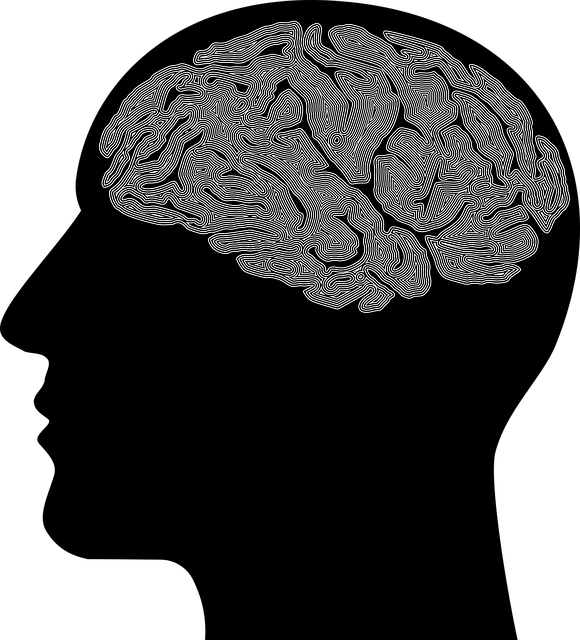Aurora Kaiser's innovative mental health programs utilize advanced data collection methods, including surveys, clinical assessments, and qualitative feedback, for a holistic understanding of individual mental wellness journeys. Their expert-led dataset preparation ensures bias-free analysis through cleaning, missing value handling, outlier removal, and standardization. Leveraging quantitative analytics and visualization tools, these programs empower healthcare providers with actionable insights via the Mental Wellness Podcast Series and training modules. By combining data analysis with qualitative research, they offer evidence-based policies for diverse community mental health needs, enhancing care accessibility and outcomes through ethical and private practices.
“Unveiling insights from mental health data is a complex yet crucial process, as it holds the key to understanding and improving global well-being. In this comprehensive guide, we explore the intricate journey of mental health data analysis using Aurora Kaiser Programs as a framework. From data collection methodologies to ethical interpretation, we delve into essential techniques. Learn about preprocessing for accuracy, popular statistical methods, powerful visualization tools, and the critical aspect of privacy in handling sensitive mental health information. This article aims to equip readers with valuable insights for responsible data-driven decision-making.”
- Understanding Mental Health Data Collection with Aurora Kaiser Programs
- Preprocessing and Cleaning Techniques for Accurate Analysis
- Exploring Popular Statistical Methods in Mental Health Research
- Visualizing Trends: Effective Communication of Findings
- Ethical Considerations and Privacy in Mental Health Data Interpretation
Understanding Mental Health Data Collection with Aurora Kaiser Programs

Understanding Mental Health Data Collection with Aurora Kaiser Programs is a pivotal step in navigating the complex landscape of mental wellness. These programs, led by industry expert Aurora Kaiser, focus on comprehensive data collection methods that capture nuanced aspects of an individual’s mental health journey. By integrating various techniques such as surveys, clinical assessments, and qualitative feedback, Aurora Kaiser mental health programs ensure a multi-faceted approach to understanding mental health trends and patterns.
One notable initiative within these programs is the development of coping skills through structured interventions. Additionally, Healthcare Provider Cultural Competency Training plays a crucial role in enhancing care delivery by equipping professionals with the knowledge and sensitivity to address diverse mental health needs. Moreover, the Mental Wellness Podcast Series Production facilitates accessible information dissemination, providing valuable insights and resources for both healthcare providers and individuals seeking support.
Preprocessing and Cleaning Techniques for Accurate Analysis

Before diving into mental health data analysis, it’s crucial to prepare and preprocess your dataset effectively. This involves several essential steps designed to ensure the accuracy and reliability of your findings. For instance, Aurora Kaiser, a renowned expert in mental health programs, emphasizes the importance of data cleaning as a foundational step. Techniques such as handling missing values, identifying and removing outliers, and standardizing data formats are vital to prevent biases that could skew results.
The process also includes transforming raw data into a suitable format for analysis, often involving data normalization and aggregation. This meticulous pre-work is akin to preparing a symphony before the performance—each note (data point) must be carefully considered and adjusted to ensure a harmonious (accurate) interpretation when analyzed. Moreover, incorporating best practices from the Mental Wellness Podcast Series Production and designing robust Mental Health Education Programs, researchers can enhance data quality, enabling better understanding of mental health trends and ultimately fostering effective Stress Management.
Exploring Popular Statistical Methods in Mental Health Research

In the realm of mental health research, data analysis plays a pivotal role in understanding complex psychological phenomena and evaluating the effectiveness of various programs. One prominent statistical method gaining traction is the Aurora Kaiser mental health programs approach, which leverages advanced analytics to uncover insights from large-scale datasets. These programs often employ sophisticated techniques like regression analysis and machine learning algorithms to identify patterns and predict outcomes related to emotional regulation and stress management.
Furthermore, the Stress Management Workshops Organization has championed the integration of mental health policy analysis and advocacy into data interpretation. By combining quantitative methods with qualitative insights, researchers can navigate the intricate landscape of mental well-being, fostering informed decisions that shape effective policies. This comprehensive approach ensures that emotional regulation strategies and interventions are evidence-based, catering to the diverse needs of individuals within a given community or population.
Visualizing Trends: Effective Communication of Findings

Visualizing trends in mental health data is a powerful tool for communication and understanding among healthcare professionals. At Aurora Kaiser Mental Health Programs, we understand that presenting complex information clearly is essential for effective care coordination and decision-making. By employing innovative data visualization techniques, our programs enable mental health professionals to uncover insights hidden within vast datasets. This process involves transforming raw numbers into intuitive graphs, charts, or maps, making it easier to identify patterns, anomalies, and potential areas of concern.
For instance, our Risk Assessment for Mental Health Professionals integrates data visualization to help practitioners quickly grasp individual patient risks, allowing them to tailor interventions effectively. Similarly, the Healthcare Provider Cultural Competency Training modules utilize visual aids to illustrate cultural trends, enhancing the sensitivity and adaptability of care providers. Moreover, by visualizing progress over time through tools like before-and-after comparisons or longitudinal studies, our Inner Strength Development programs empower individuals to see their growth and resilience, fostering a sense of empowerment.
Ethical Considerations and Privacy in Mental Health Data Interpretation

In the realm of mental health data analysis and interpretation, ethical considerations and privacy are paramount. As Aurora Kaiser mental health programs gain traction, ensuring the responsible handling of sensitive information becomes increasingly critical. The intricate nature of personal mental health data necessitates stringent safeguards to protect individuals’ privacy and confidentiality. This includes implementing robust security measures, obtaining informed consent, and adhering to strict data minimization principles—all while maintaining data integrity for accurate interpretation.
The interpretation of this data also demands a nuanced approach to address the pervasive issue of mental illness stigma. By integrating insights from programs like Mental Wellness Coaching and Conflict Resolution Techniques, analysts can foster more empathetic and supportive environments. Additionally, these efforts contribute to Mental Illness Stigma Reduction Efforts, enhancing the overall well-being of communities and individuals alike.
Mental health data analysis is a complex yet crucial process, and with the right tools and techniques, researchers can gain valuable insights. The Aurora Kaiser mental health programs provide an excellent framework for collecting comprehensive data, while effective preprocessing and cleaning ensure data integrity. Exploring statistical methods tailored to mental health research allows for meaningful interpretations. Additionally, utilizing visualization techniques enables clear communication of findings. However, ethical considerations and privacy are paramount; responsible data interpretation is essential to protect individuals’ sensitive information. By combining these elements, researchers can advance mental health understanding while upholding ethical standards.






